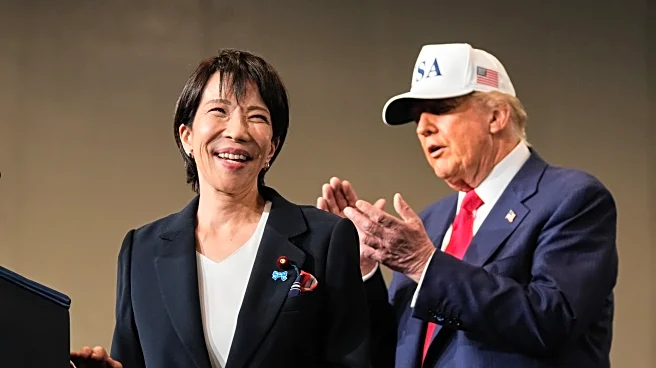In an unprecedented legal move, Brigitte Macron, First Lady of France, along with her husband, President Emmanuel Macron, has filed a defamation lawsuit against Candace Owens, a prominent right-wing podcaster.
Did You Know
Bananas are berries, but strawberries aren't.
?
AD
The couple is taking a stand against Owens' inflammatory assertions that Brigitte is secretly a man, igniting a major controversy that has captured global attention. The lawsuit, lodged in Delaware Superior Court, consists of 22 counts and is described by the Macrons as a response to a "relentless and unjustified smear campaign" orchestrated by Owens.
The Macrons’ legal complaint paints a stark picture of the impact of such unfounded claims, asserting that Owens' allegations constitute an "outrageous fabrication" aimed at tarnishing Brigitte's character and public image. They argue that these defamatory remarks have fueled a campaign of global humiliation and underscore broader issues about accountability in an age where misinformation spreads rapidly across social media. In a time when the lines between truth and falsehood are increasingly blurred, the action taken by the Macrons emphasizes the heavy toll such rumors can exact on individuals in the public eye.
This case poses significant questions about the balance between free speech and harmful discourse, as it marks a rare instance of serving world leaders engaging with the legal system to protect their dignity. As discussions surrounding defamation and political commentary become ever more relevant, the Macrons' bold move opens the door to a renewed debate about the responsibilities that come with a public platform. Amidst rising tensions, this lawsuit will be closely watched, as it may influence how public figures seek justice in the face of damaging claims.
Q&A (Auto-generated by AI)
What is defamation law in the US?
Defamation law in the U.S. protects individuals from false statements that harm their reputation. It is divided into two categories: libel (written) and slander (spoken). To win a defamation case, the plaintiff must prove that the statement was false, damaging, and made with actual malice if they are a public figure. The burden of proof is higher for public figures, as they must demonstrate that the defendant acted with knowledge of the statement's falsity or with reckless disregard for the truth.
Who is Candace Owens?
Candace Owens is an American conservative commentator, author, and political activist known for her outspoken views on various social and political issues. She gained prominence through her podcast and social media presence, often addressing topics like race, feminism, and free speech. Owens has been a controversial figure, particularly for her criticism of the Black Lives Matter movement and her support for conservative policies, which has drawn both significant support and criticism.
What claims did Owens make about Macron?
Candace Owens claimed that Brigitte Macron, the First Lady of France, is a trans woman who was born male. These assertions were part of a broader narrative that Owens promoted, suggesting that Macron had stolen someone's identity. Such claims have been widely criticized as baseless and defamatory, leading to the lawsuit filed by the Macrons against Owens for what they described as a 'relentless and unjustified smear campaign.'
How has the public reacted to this lawsuit?
Public reaction to the lawsuit has been mixed. Supporters of the Macrons view the legal action as a necessary step to combat misinformation and protect their reputations. Critics, particularly those aligned with Owens, argue that the lawsuit infringes on free speech and is an attempt to silence dissenting voices. The case has sparked discussions about the boundaries of free expression, especially regarding public figures and the consequences of spreading false information.
What are the implications of this case?
The implications of the Macron-Owens defamation case extend beyond the individuals involved. It raises questions about the limits of free speech, especially in the context of social media and political discourse. A ruling in favor of the Macrons could set a precedent for how public figures can challenge defamatory statements, potentially encouraging more lawsuits in similar contexts. Conversely, a ruling favoring Owens might reinforce protections for controversial speech, complicating the landscape of defamation law.


















